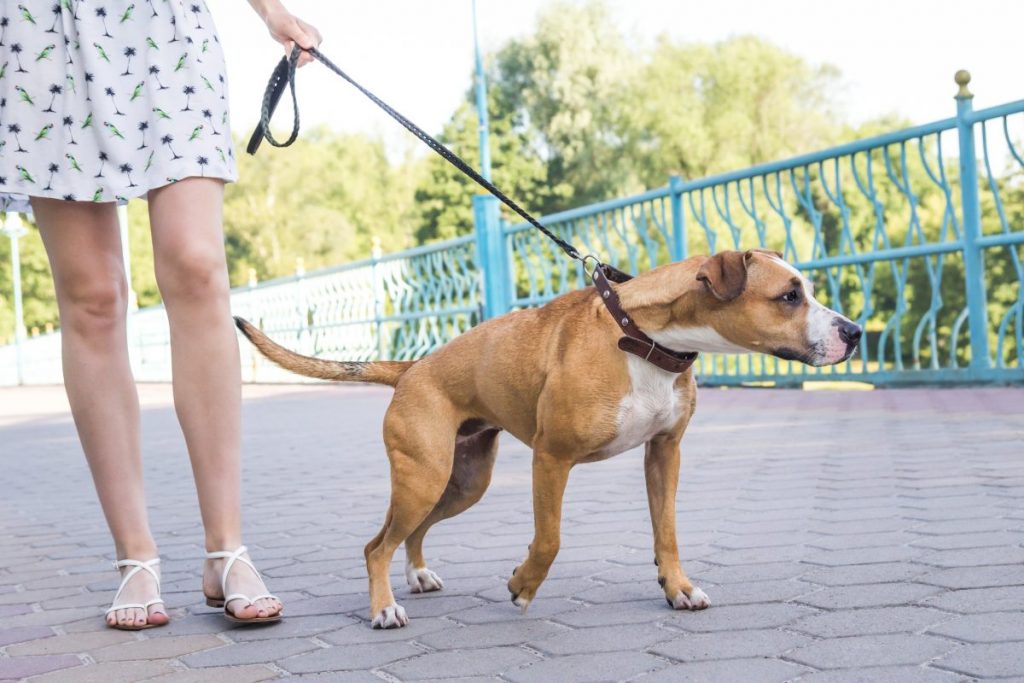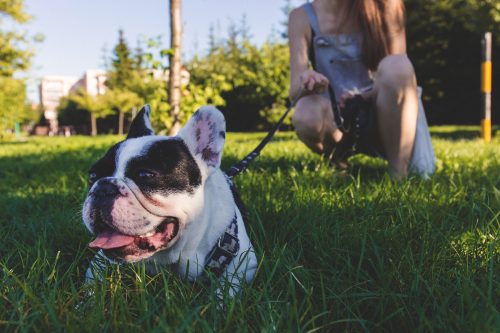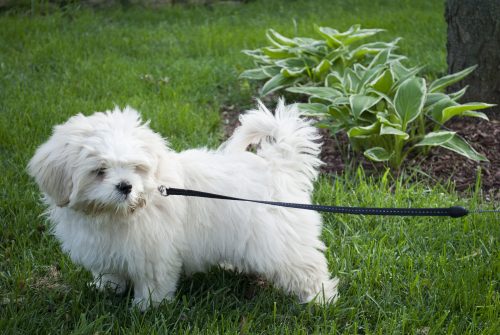Ever been walking along, taking in the sights of the great outdoors with your best friend and suddenly your arm gets violently yanked – nearly out of its socket? Your dog pulling on his leash is a problem almost every dog owner faces at some point.
And every dog owner wonders why their furry best friend would intentionally choke himself for the chance to smell another dog’s pee on a light pole a couple of seconds early. So why does your dog pull on his leash?
He’s Excited
This seems self-evident. It is. Dogs are really, really excited – really, really often. Have you ever been so excited you couldn’t control yourself – or at least did something you otherwise would not have? Dogs are that excited every day – especially when they get to go on a walk.
They’re willing to suffer a bit of light choking in their pursuit of pure joy. Every sight and smell, every running squirrel or diving bird, every light post, every flower bed – just about anything can set your dog into a fit of excitement. You really must respect the dedication – but you don’t have to put up with it.
You Haven’t Told Him Not To
Yes, dogs are excitable. But nothing makes them more excited than pleasing their owners. Your dog looks to you for love, for validation, and for direction. If you communicate to your dog that pulling is bad, his desire to please you will almost always outweigh his desire to sniff that fire hydrant. Of course, it’s not quite that simple.
Not every dog owner has the luxury of raising a puppy. Puppies are, of course, the most trainable. But you can teach an old dog new tricks – it just takes a bit more patience. Every dog is different. They have different personalities and different upbringings. But with some simple tactics, you can.
How to Train Your Dog to Stop Pulling on The Leash
There are a lot of different ways to train your dog to stop pulling on the leash. You will find a variety of different opinions – and most of them are helpful. But the reality is, it’s impossible to know exactly which technique will work for your dog and his unique personality. Here are a few that many dog owners and professional trainers recommend:
The Statue of Liberty
Try this: Whenever your dog starts to pull ahead while you are walking him, just stop. And don’t move forward until your dog stops as well. It may take a few seconds, but eventually, your dog will turn around and look at you, wondering why you’re not moving. Once he does, start the walk again. Rinse and repeat the tactic for as long as it takes. Eventually, your dog will learn that pulling means stopping – and stopping is no fun.
Get Leverage
With a normal neck leash, your dog has the upper hand – so to speak. If your dog pulls on the leash, you already know that he doesn’t mind choking himself in pursuit of a loftier goal. And you know that he’s strong enough to drag you along.
Switching from a traditional neck collar to a harness can upset the balance of power – in your direction. Of course, a harness still allows your dog to pull on the leash. But the harder he pulls, the less he moves forward. And more importantly, you’ll have an easier time in the tug-of-war.
Beat Them to The Punch
One of the reasons your dog gets so excited when he goes for a walk is because he’s been cooped up all day. If time allows, try to tire your dog out before you take him on a walk. If you have a yard, play fetch. If you live in an apartment, play with him. Figure out how to drain at least a portion of your dog’s energy reserve prior to his daily walk. He’ll be less excited – and more apt to acquiesce to your wishes. Tired dogs are easier to train.
If none of these tactics work, try some others. And keep trying until you and your dog have come to an agreement on how you will walk together, and both enjoy the process.






